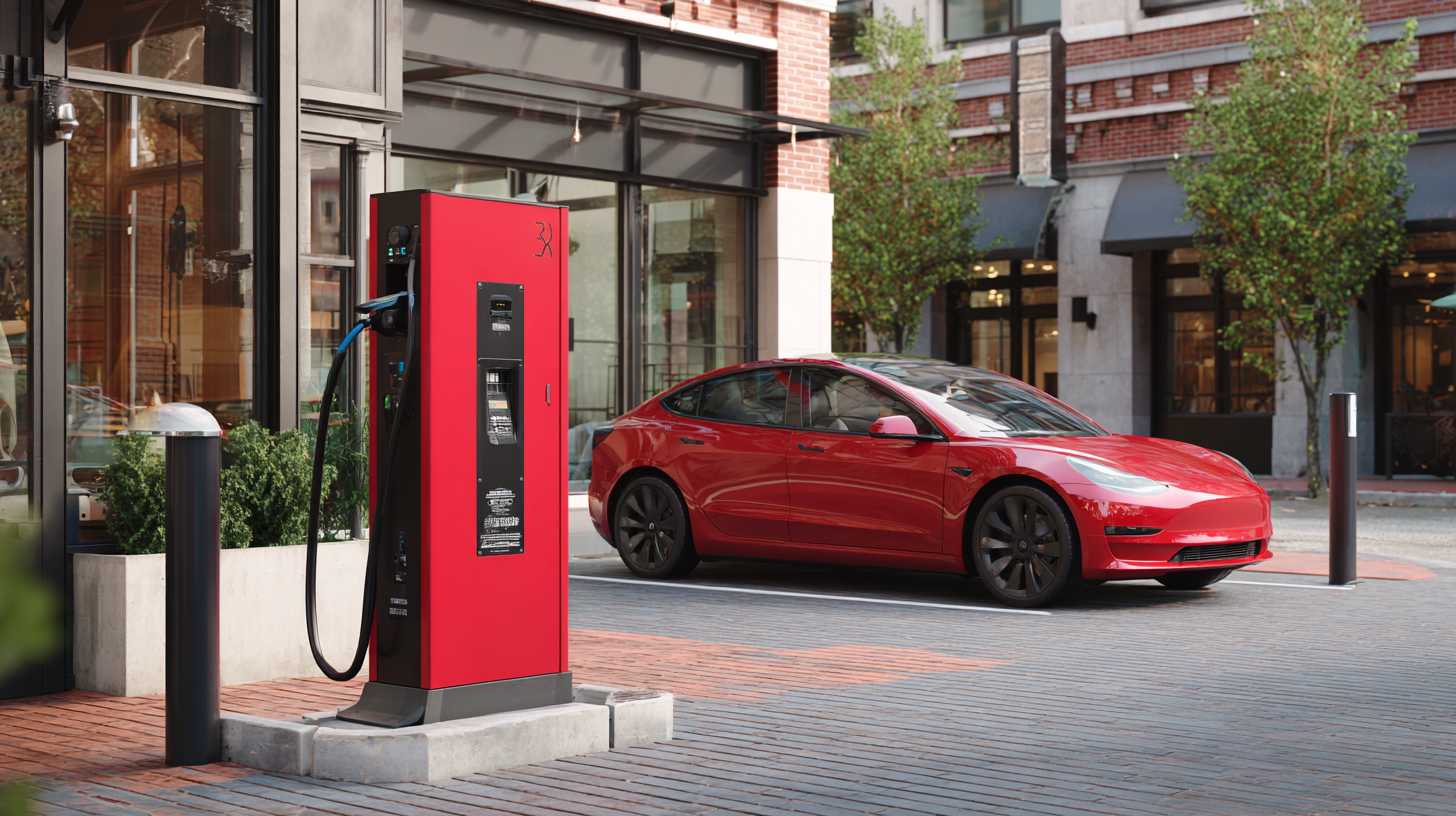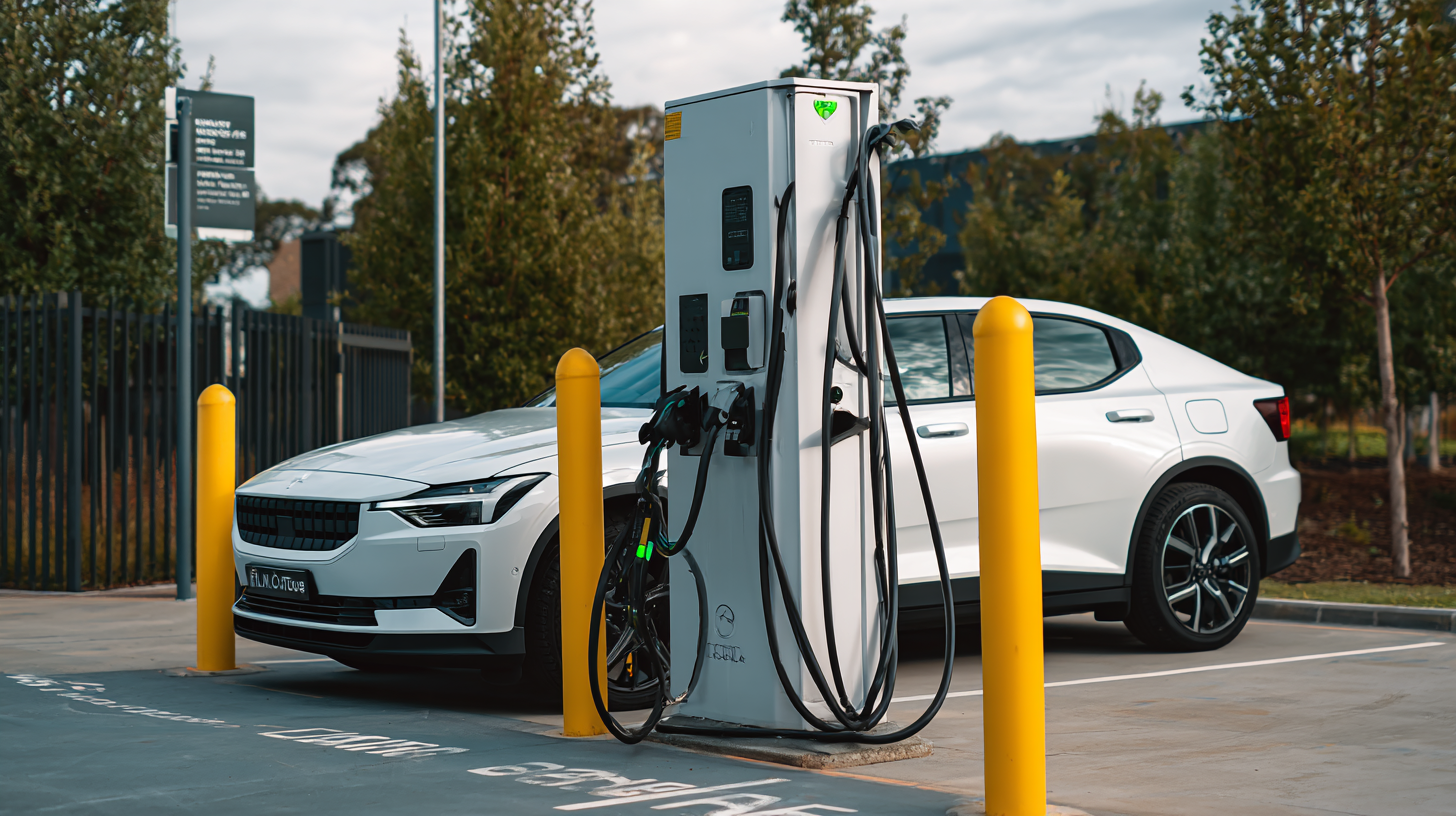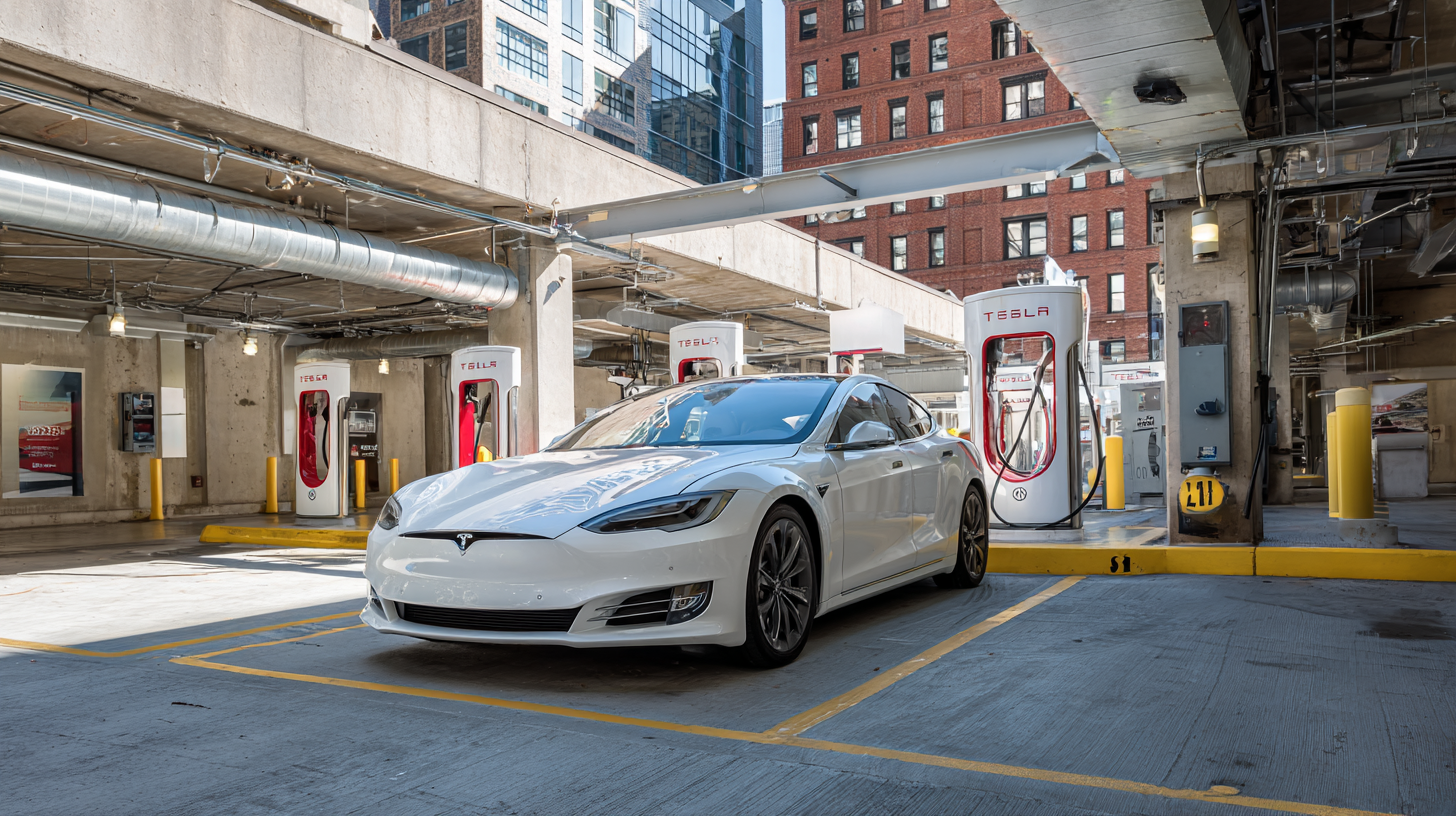 As electric vehicles (EVs) continue to gain traction in the automotive market, the demand for efficient charging solutions has never been more critical. According to a recent report by the International Energy Agency (IEA), the number of electric cars on the road is projected to reach 145 million by 2030, highlighting the urgent need for reliable infrastructure.
Central to this infrastructure is the DC EV charger, which provides rapid charging capabilities that are essential for long-distance travel and heavy usage. A study from Frost & Sullivan reveals that DC fast chargers reduce charging time to as little as 30 minutes, making them a vital component for EV owners seeking convenience and efficiency.
As the market evolves, understanding the benefits of different types of DC EV chargers is crucial for consumers looking to make an informed choice that aligns with their driving habits and charging needs.
As electric vehicles (EVs) continue to gain traction in the automotive market, the demand for efficient charging solutions has never been more critical. According to a recent report by the International Energy Agency (IEA), the number of electric cars on the road is projected to reach 145 million by 2030, highlighting the urgent need for reliable infrastructure.
Central to this infrastructure is the DC EV charger, which provides rapid charging capabilities that are essential for long-distance travel and heavy usage. A study from Frost & Sullivan reveals that DC fast chargers reduce charging time to as little as 30 minutes, making them a vital component for EV owners seeking convenience and efficiency.
As the market evolves, understanding the benefits of different types of DC EV chargers is crucial for consumers looking to make an informed choice that aligns with their driving habits and charging needs.
When it comes to electric vehicle (EV) charging, understanding the nuances of DC EV chargers is essential for making an informed choice. Unlike their AC counterparts, DC EV chargers convert electricity directly to a form that can be stored in the vehicle, leading to significantly faster charging times. According to the U.S. Department of Energy, a typical DC fast charger can deliver up to 100 miles of range in just 30 minutes, making them pivotal for long-distance travel and reducing downtime.
Moreover, the charging speed isn't the only differentiating factor. DC EV chargers tend to be equipped with robust safety features and advanced connectivity options. Research by the International Energy Agency (IEA) highlighted that the global market for DC fast chargers is expected to grow at a compound annual growth rate (CAGR) of over 30% from 2021 to 2030. This growth is driven by advancements in charging technology and a surge in EV adoption, underscoring the importance of selecting a charger that not only meets current needs but is also future-proof in terms of compatibility and performance. Understanding these differences can greatly influence EV owners' satisfaction and overall experience.
When choosing the best DC EV charger for your electric vehicle, several key features should be at the forefront of your decision-making process. Firstly, consider the charging speed; a higher kW output can significantly reduce charging time, making it more convenient for users who are often on the go. Look for chargers that offer fast charging capabilities, ideally around 50kW or higher, to optimize your charging experience. Additionally, compatibility with various EV models is essential, so be sure the charger supports a range of connector types to accommodate different vehicles.

Another important feature is the accessibility and availability of the charging station. Locations that are part of a wider network can provide more convenience, especially in urban areas where public charging is in demand. The North American DC charger market is expected to grow substantially, which indicates a rising investment in public charging infrastructure. Therefore, opt for a provider with a clear deployment strategy to ensure that more charging stations will be available as the market evolves. Reliability and maintenance support are also critical; choose a charger from a brand known for its durable and reliable technology to avoid any disruptions in service.
When it comes to charging your electric vehicle (EV) quickly and efficiently, selecting the right DC EV charger can significantly impact your experience. In this comparison of popular DC EV chargers on the market, we’ll explore key features, performance, and user satisfaction to help you make an informed decision.
One of the most critical aspects to consider is charging speed. Different models offer various power outputs, typically ranging from 50 kW to 350 kW. For example, the ChargePoint Express 250 provides rapid charging capabilities, ideal for commercial locations or fleets. However, for personal home use, a lower-powered option might suffice.
Tips: Always check the compatibility of the charger with your specific EV model to avoid any functionality issues. Additionally, consider the charger’s installation requirements and whether you need to upgrade your electrical system.
Another factor to weigh is the additional features, such as smart connectivity. Chargers like the Blink DC Fast Charger come with smartphone app integration, allowing you to monitor charging sessions remotely.
Tips: Look for user-friendly interfaces and customer support options. Reading customer reviews can provide insights into real-world performance and reliability, guiding you toward making a choice that suits your needs best.
When considering the installation of a DC EV charger for your electric vehicle, there are several key factors to keep in mind to ensure a smooth setup. First, evaluate the location for installation. Ideally, the charger should be placed in an easily accessible area near a power source. This minimizes the distance between the charger and the vehicle, reducing potential installation costs related to wiring and electrical upgrades.

Tip: Check local regulations and permits required for installing electric vehicle chargers in your area. Compliance can save you from fines and ensure that your installation meets safety standards.
Another important aspect to consider is the electrical capacity of your home. Ensure that your electrical panel can support the additional load from the DC charger. You may need to consult with an electrician to determine if an upgrade is necessary, which could involve assessing the overall electrical system of your home.
Tip: Schedule an electrical audit before installation to identify any potential issues and plan for necessary upgrades in advance. This proactive step can prevent costly delays and ensure that your charging infrastructure is both safe and efficient.
When it comes to maximizing efficiency while charging your electric vehicle (EV), understanding the nuances of charging technology is crucial. According to a recent report by the U.S. Department of Energy, deploying Level 2 and DC fast chargers strategically can reduce charging time by up to 75% compared to standard outlets. This is particularly beneficial for EV owners looking to boost their vehicle's range quickly during long trips or busy schedules.
Another vital aspect to consider is the timing of charging sessions. Studies show that charging during off-peak hours not only lowers costs—since many utility providers offer reduced rates—but also helps to reduce strain on the grid. Utilizing smart charging solutions can further enhance this efficiency; almost 40% of EV owners who have adopted smart chargers report significant savings on their electricity bills, as per the latest EV market analysis. By being strategic about where and when to charge, EV owners can ensure their vehicles are always ready to hit the road while maximizing performance and minimizing costs.
This chart compares the charging speeds of various DC EV chargers measured in kW, giving electric vehicle owners insights into the most efficient charging solutions available.
